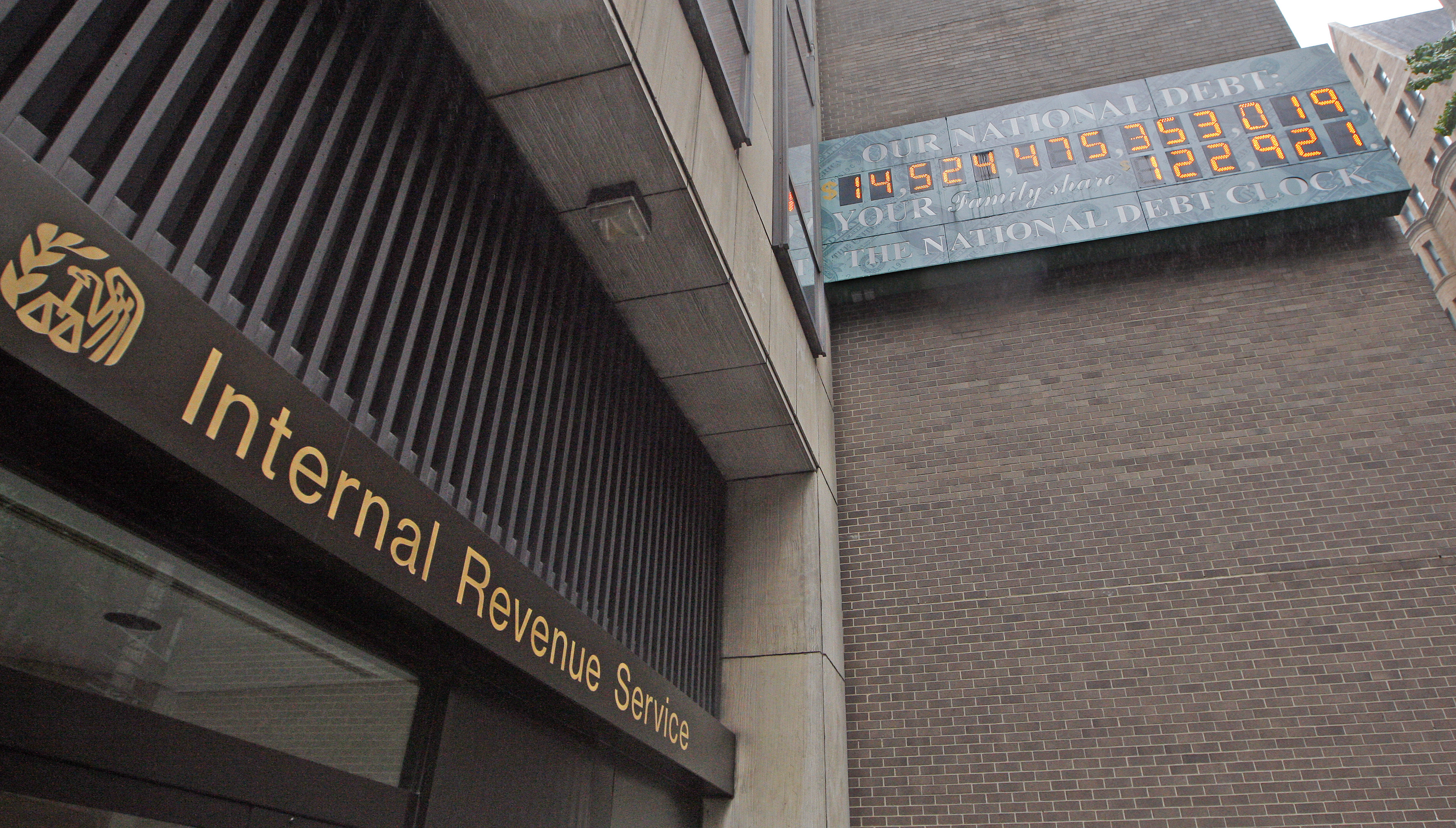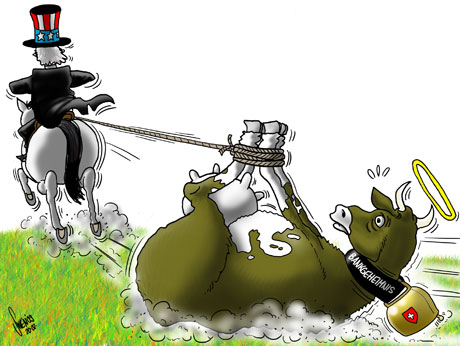US tax “ultimatum” has Swiss banks sweating

Some 11 Swiss banks must hand over thousands of client names and pay billions in fines to avoid tax evasion prosecution in the United States, according to reports.
Swiss newspapers claim the deadline for the US ultimatum passed on Tuesday night. However, banks are keeping tight lipped over claims that they would also have to provide all correspondence with offshore clients over the past 11 years.
The Department of Justice (DoJ) has been steadily closing a net around Swiss banks ever since UBS admitted in 2009 to helping wealthy US citizens evade taxes. The Swiss authorities were then compelled to water down banking secrecy laws by handing over the names of nearly 4,500 UBS clients.
Since then, the DoJ and the US tax authority – the Internal Revenue Service (IRS) – have been building cases against other Swiss banks that are alleged to have either opened secret accounts from scratch or poached UBS clients who wanted to dodge the crackdown.
Two tax amnesties have netted thousands of clients, some of whom have provided the IRS with details of how they opened their accounts and a so-called roadmap of which banks allegedly helped them evade taxes.
Hopes dashed
In addition, two former Swiss bank employees were arrested this year with at least one turning whistleblower to lighten his sentence.
Information gleaned by the SonntagsZeitung and Tages-Anzeiger newspapers points to the US authorities demanding some 6,500 account details and around $3 billion (SFr2.8 billion) in fines from the 11 banks. UBS paid a $780 million fine in 2009.
It has been widely reported that the Swiss authorities had hoped to negotiate a catch-all civil settlement that included all Swiss banks. But those hopes appear to have been dashed by the DoJ’s determination to pursue criminal probes into the 11 worst offenders.
The prospect of a criminal prosecution has placed banks under far greater pressure as a conviction could spell the end of their activities in the US.
Worried clients
“It appears that the US is pressing for a settlement similar to the UBS deal, which entailed a deferred prosecution agreement that included the payment of funds [fines], the disclosure of information and cooperation in further investigations,” US tax lawyer Scott Michel told swissinfo.ch.
Credit Suisse has already complied with the ultimatum – at least in part – by informing an unspecified number of US clients last month that it would hand over their names.
The bank, along with the State Secretariat for International Financial Matters, which has been handling Switzerland’s negotiations, declined to comment on the latest reports of a deadline for the 11 financial institutions.
But Scott Michel told swissinfo.ch that his office had received “multiple calls” from worried clients who wanted to come clean before the authorities caught up with them.
“If the name is provided by the Swiss before the account holder contacts the IRS, the IRS will likely take the position that any disclosure is untimely, leading to a risk of criminal prosecution,” Michel warned.
Little legal redress
Banking clients can expect little protection from the Swiss courts despite the strong tradition of legal banking secrecy in the country.
Under the terms of the UBS deal which was ratified by the Swiss parliament in 2010, the US authorities could legitimately demand information from other banks that demonstrate “behavioural patterns” of tax evasion.
Some 380 UBS clients appealed to the courts against the handover of their details to the US authorities, but only 100 cases were upheld – some of them only partially.
On Tuesday, a Swiss court rejected an appeal by a Credit Suisse client for more time to prepare a legal defence against the handover of his confidential data, according to the Reuters news agency.
Swiss banking secrecy faces a major threat in the United States following the successful prosecution of UBS bank in 2009.
Some 4,450 UBS clients were revealed to the US tax authorities after the bank admitted aiding and abetting tax evaders.
The prosecution was made possible by former UBS banker Bradley Birkenfeld turning whistleblower. However, Birkenfeld was also jailed for 40 months for failing to reveal everything he knew.
The US has recently turned the heat on Credit Suisse, with the bank agreeing to hand over the names of an unspecified number of its clients.
Last month, Credit Suisse also closed down its Swiss-based operations that used to serve wealthy US clients, and folded the unit into its US operation.
Up to ten other Swiss banks are also in the sights of the US, some of which allegedly gave refuge to UBS clients after the large bank was prosecuted.
Another UBS whistleblower Renzo Gadola was last month let off with a light sentence of five years’ probation in the US after giving evidence against his former employer. Unlike the hefty jail term for Birkenfeld – who is still behind bars – Gadola’s sentence has been seen as giving the green light for other whistleblowers to give evidence.

In compliance with the JTI standards
More: SWI swissinfo.ch certified by the Journalism Trust Initiative






You can find an overview of ongoing debates with our journalists here. Please join us!
If you want to start a conversation about a topic raised in this article or want to report factual errors, email us at english@swissinfo.ch.